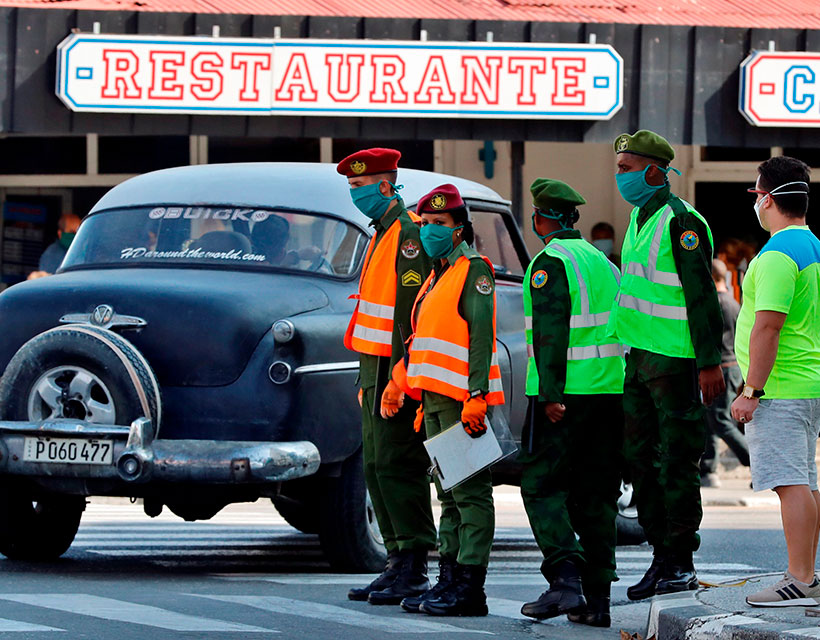
A group of five Un United Nations special rapporteurs and two independent human rights experts have on Thursday called on the United States to remove the economic, trade and financial blockade it imposed on Cuba in the 1960s to “save lives” now that the Caribbean nation is facing the coronavirus pandemic.” We urge the United States Government to withdraw measures to establish trade barriers,” as well as measures to “prevent financing for the purchase of medicines, medical equipment, food and other essential goods,” they said. UN experts have stressed that Covid-19 “is not only lethal, but causes enormous physical and psychological suffering, especially in countries where health workers cannot meet their professional obligations due to the absence of the right equipment and medicines to treat their patients. Thus, they have explained that the “cumbersome” procedures for the export of goods and the “expensive” licensing process that exist in Cuba because of the US embargo make it difficult to purchase the essential inputs to combat coronavirus. Since the onset of the pandemic, they have stated, “the impact of the blockade has incur an additional financial burden and an increase in the time of shipment of shipments due to the inability to procure supplies (…) directly from the United States and has therefore constrained the effectiveness of the response” to the coronavirus.” In the pandemic, the unwillingness by the U.S. government to suspend sanctions can lead to a greater risk to this suffering in Cuba and other countries affected by its sanctions,” they have argued. In particular, they expressed concern about “the risk to life, health and other essential rights of Cuba’s most vulnerable population sectors, including people with disabilities or the elderly.” For this reason, they have considered “of the utmost importance and urgency” for the United States to reverse the blockade, stressing that “it will only be possible to put the virus under control through joint efforts of all states”. “In the face of this global challenge, no one should be denied vital medical care,” they said. The note is signed by the Special Rapporteurs on the negative impact of unilateral coercive measures on the enjoyment of human rights, Alena Douhan; on the right to development, Saad Alfarargi; on the rights of persons with disabilities, Catalina Devandas-Aguilar; on extrajudicial executions, Agnas Callamard; and about torture, Nils Melzer; as well as independent experts Livingstone Sewanyana, on promoting democracy, and Obiora Okafor, on international solidarity.
"El reclamo puede ser genuino, pero construido sobre una mentira", apuntó el presidente Javier Milei…
El gobernador de la provincia de Buenos Aires, Axel Kicillof, encabezó un acto en Ensenada…
El diputado nacional de La Libertad Avanza, José Luis Espert, expresó su confianza en la…
Tras la masiva reaparición de Cristina Fernández de Kirchner, el presidente Javier Milei apuntó contra…
El principal propósito de la nueva comisión es evaluar los recursos humanos en el Senado,…
En una medida que busca redefinir las condiciones de los seguros de automóviles en Argentina,…
Esta web usa cookies.